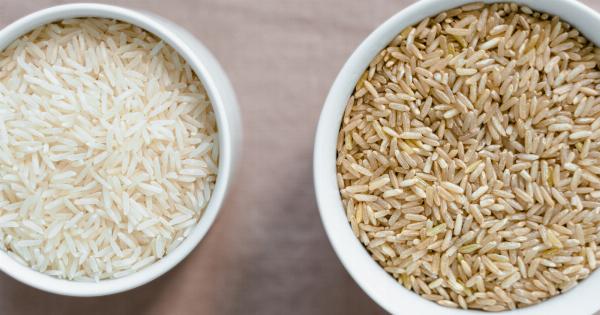Crohn’s disease is a type of inflammatory bowel disease that affects the digestive tract. Its symptoms include abdominal pain, diarrhea, fatigue, and weight loss.
There are many triggers that can worsen the symptoms of Crohn’s disease, and one of them is fungi.
What is Fungi?
Fungi are a group of organisms that are found in the environment, such as soil, plants, and animals. There are many types of fungi, including yeasts, molds, and mushrooms.
Fungi can be both beneficial and harmful to humans, depending on the type and the amount that is consumed or inhaled.
How Fungi Worsen Crohn’s Symptoms?
Fungi can worsen Crohn’s symptoms in several ways:.
- Infection: If the digestive tract is infected with fungi, it can cause inflammation and worsen the symptoms of Crohn’s disease. For example, Candida albicans is a type of fungi that can infect the digestive tract and cause thrush, a common symptom in people with Crohn’s disease.
- Allergy: Some people with Crohn’s disease may be allergic to certain types of fungi, such as Aspergillus or Penicillium. This can cause an immune response, leading to inflammation and worsening of Crohn’s symptoms.
- Microbiome: The fungi that are present in the gut microbiome can also affect Crohn’s symptoms. Studies have shown that people with Crohn’s disease have a different gut microbiome than healthy people, and this includes differences in the types and amounts of fungi present in the gut. Some fungi can produce harmful metabolites that can worsen the symptoms of Crohn’s disease.
How to Avoid Fungi?
While it’s impossible to completely avoid fungi, there are steps that people with Crohn’s disease can take to reduce their exposure:.
- Avoid mold: Mold is a type of fungi that can grow on damp surfaces, such as walls, ceilings, and carpets. If you notice mold in your home, have it removed by a professional. Use a dehumidifier to reduce the moisture levels in your home.
- Avoid contaminated food: Make sure to wash fruits and vegetables thoroughly before consuming them. Avoid foods that are known to be contaminated with fungi, such as moldy cheese, bread, and nuts.
- Avoid dusty environments: Dust can contain fungi spores that can be inhaled and cause respiratory problems. Use a mask when cleaning the house or working in a dusty environment.
- Avoid antibiotics: Antibiotics can disrupt the balance of bacteria and fungi in the gut, leading to overgrowth of harmful fungi. Use antibiotics only when necessary and under the guidance of a healthcare provider.
Treatment
If you suspect that your Crohn’s symptoms are worsened by fungi, talk to your healthcare provider. They may recommend antifungal medication to treat the infection or allergy.
They may also recommend probiotics or prebiotics to restore the balance of gut microbiome and improve the symptoms of Crohn’s disease.
Conclusion
Fungi can worsen the symptoms of Crohn’s disease in several ways, including infection, allergy, and microbiome imbalance.
While it’s impossible to completely avoid fungi, people with Crohn’s disease can take steps to reduce their exposure, such as avoiding mold and contaminated food, and using antibiotics only when necessary. If you suspect that your Crohn’s symptoms are due to fungi, talk to your healthcare provider about treatment options.



























